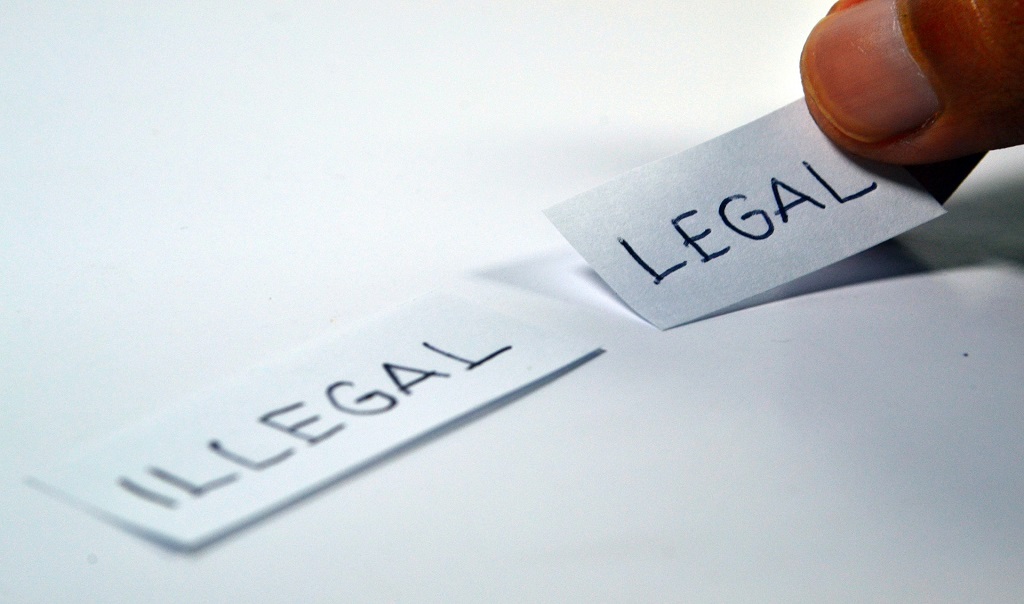Virginia made headlines this week as the latest of the United States to sign cannabis legalization into law. While the occasions drew acclaim from proponents of such legislation, the effects will not be felt in the state until the new law comes into effect in 2024. The law has passed both legislative bodies in the state and now only requires the signature of Governor Ralph Northam, a supporter of cannabis legalization.

Last year, Gov. Northam signed cannabis decriminalization into law. This provided the framework for the most recent headway marijuana legalization has made. Currently, possession of a personal amount is punishable by a fine and no jail time. While marijuana will not be fully legalized within the framework of the new bill until 2024, the state is slowly changing its tune. Sights are now set on a regulated and profitable marijuana marketplace in which large corporate interests do not hold a monopoly on participation.
As the first southern state and 15th overall to vote to legalize recreational marijuana Virginia’s legislators are optimistic about the benefits a legalized cannabis industry will bring to the state. There are many benefits of the new legislation bring openly promoted among lawmakers.
Among them, equitable treatment for those who use cannabis recreationally and a reprieve of penalization is elevated in the press.
The chief sponsor of the Senate bill, Democratic state Sen. Adam Ebbin, said, “We are on the path to an equitable law allowing for adults to not be penalized for using cannabis,” while his colleague Senator Jennifer McClellan thought the bill fell short of the change necessary to right wrongs inflicted on marginalized populations. In contrast, Sen. McClellan attested, “We still have a long way to go to ensure we address the disproportionate impact marijuana prohibition has had on Black and brown communities.” Sen. McClellan urged Gov. Northam to expedite several proposed changes, like legalizing legalize simple possession, in 2021. Currently, simple possession is punishable by a fine of no more than $25.
Charniele Herring, House Majority Leader, views the bill as more of a “justice bill” that attempts to right the wrongs of institutional injustice predominantly targeting minority populations. On the topic, Herring asserts, “This moves us in a … direction to strike down and to address those institutional barriers, and over-policing, over-arrests, over-convictions of African Americans who do not use marijuana at a higher rate than our white counterparts, but we seem to get the brunt of criminal convictions.”
The ACLU saw things differently than legislators and more in line with Sen. McClellan, releasing a tweet stating, “Today, the Virginia General Assembly failed to legalize marijuana for racial justice. Lawmakers paid lip service to the communities that have suffered decades of harm caused by the racist War on Drugs with legislation that falls short of equitable reform and delays justice.”
Those opposed to the law state their chief contention with the new law is that it will lead to an increase in “drug-impaired crashes and a rise in use by youth throughout the state. Neither argument has been the case, nor have significant spikes in either scenario been observed in jurisdictions where recreational cannabis use is legalized and regulated. Legislative members who opposed the bill urged a more measured approach to the topic of marijuana legalization. The Virginia House Minority Leader, Tommy Norment, would criticize his colleagues’ seemingly-rushed approach to passing the law, stating, “I would say there are not more than two or three members of this body that have a clue about the comprehensiveness of what this bill does.”
Under the new law, citizens age 21 and older will be allowed to possess up to an ounce of marijuana. The sale of recreational cannabis in regulated markets will also come into effect on Jan. 1, 2024.
A 21 percent excise tax will also be levied on all marijuana sales, with municipalities allowed to tack on up to an additional 3 percent retailer tax.
Home cultivation will be allowed up to a maximum of four plants per household.
Vertical business integration will be allowed to grandfather in medical marijuana and industrial hemp producers. Micro-businesses are afforded the same ability to vertically integrate.
Additionally, the bill ensures that 30% of marijuana tax revenue, that’s after costs, is to be committed towards a Cannabis Equity Reinvestment Fund. The Fund will provide monetary assistance to communities “that have been historically over-policed for marijuana crimes.” The funds will be put towards reinvestment efforts like scholarships, workforce development, and job placement services, as well as delivering low- or no-interest loans for cannabis businesses that qualify under the bill’s set criteria. Those criteria and other details regarding the Cannabis Equity Reinvestment Fund can be found under Article 29 of HB 2312.
When it comes to the nature of and historically skewed conviction rate of cannabis possession penalties, certain criminal records associated with cannabis will be automatically expunged. The summary of HB 2113 introduced by House Majority Leader Herring, which establishes these processes, is as follows:
For those Virginians with past cannabis-related convictions, those with family members who have received such convictions, or those simply residing in areas of economic inequality, a social equity application can be completed for preferential licensing towards marijuana marketplace licenses. This includes licensing as a cultivator, wholesaler, processor, or retailer.
It is estimated that the total market value of cannabis in Virginia will net more than $300 million per year. The majority of the tax revenue derived from marijuana sales is earmarked for pre-K and at-risk children.
For some legislators and civil rights groups legalized cannabis legislation cannot come fast enough. The argument that marginalized populations within the state continue to suffer under draconian laws energizes their push to legalize it before the prescribed Jan. 1, 2024 legislative timeline. Governor Northam has made no indication that his office will attempt to accelerate the timeline for cannabis legalization.